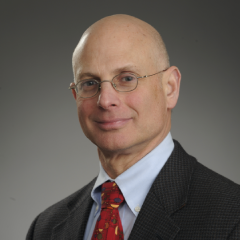Lewis Freeman
-
- Ph.D. Columbia University, 2007 (Sociology; Dissertation Title: “Social Stratification and Social Mobility in Situation Comedy;” Dissertation Sponsor: Herbert J. Gans, Robert S. Lynd Professor, Department of Sociology)
- M.Phil. Columbia University, 1987 (Sociology)
- M.A. Columbia University, 1985 (Sociology)
- A.B. Columbia College, 1980 (History-Sociology)
-
Lewis Freeman (Ph.D., Columbia), Senior Lecturer in the Department of Communication and Media Studies, has taught at Fordham since 2000. Freeman serves on the Board of Directors of the Children’s Media Association and has also served on the boards of the New York State Communication Association and the Eastern Communication Association as well as on the Task Force on Discipline Advancement for the National Communication Association. He taught at Columbia University for more than a decade, including six years as Director of the Speech Program. His achievements include an Urban Communication Foundation prize, the New York State Communication Association Neil Postman Mentor Award, two Telly awards, a Time Warner Cable grant to study the future of children’s television programming from a media literacy perspective, and a book, Sitcom Society: Social Stratification and Social Mobility in Situation Comedy (2008). His most recent publications are a book chapter, “Symbolic Interactionism: Yogi Berra Stadium and the Minor League Ballpark Experience,” in Communication and the Baseball Stadium: Community, Fandom, Memory, and Commodification (Peter Lang, 2017); and the Instructor’s Resource Manual for the textbook Media & Culture: Mass Communication in a Digital Age (co-author; Bedford/St. Martin’s, 2019).
My overall scholarly agenda focuses on issues of social justice and fostering individual opportunity. My work melds theory and practice with emphasis on social change, community engagement, and facilitating individual advancement. I have pursued these interests through research about social class on television, the process of employment interviewing, and how children conceptualize cities as different from suburbs and rural areas. My theoretical perspective follows from the work of Georg Simmel and others whose attention to underlying social forms led to remarkable insights into individual social interaction and identity formation.
Why I teach at Fordham: A faculty member's perspective on scholarship and teaching at Fordham:
I've been asked, more times than I can count, why I teach at Fordham having taught, studied, and served in a variety of capacities and settings, which included directing the Speech Program at Columbia University and consulting for businesses, foundations, labor unions, universities, law firms, and individuals.I am passionate about Fordham and its students. Fordham offers scholars the opportunity to pursue teaching and research at a university that values and supports both very highly. I strive to foster students' scholarly and professional development in class and through activities like supervising student research and mentoring students in the presentation of their scholarship at academic conferences. Fordham's curriculum enables students to empower themselves as they learn concepts and strategies that are relevant in their lives and applicable at school, work, and home. My courses are designed to help students develop critical thinking processes, sophisticated research practices, and effective written and spoken communication. My scholarship informs my teaching through classroom activities that engage students in understanding frameworks for communication; encourage them to wrestle with ethical, social, and cultural issues; enable them to become more media literate; and support them as they develop their intellectual and public "voices." I strive to teach in ways that offer transformational experiences for students both academically and personally. I challenge students to think critically, conduct substantial research for their courses, and write extensively on topics of concern to them.
-
Fabos, B., Martin, C. R., Harmsen, S., and Freeman, L. (2019). Instructor’s resource manual — Media & culture: Mass communication in a digital age. Twelfth Edition. Boston/New York: Bedford/St. Martin’s.
Freeman, L. (2017). Symbolic interactionism: Yogi Berra Stadium and the minor league ballpark experience. Chapter 6 in D. Herbeck and S. J. Drucker (Eds.), Communication and the baseball stadium: Community, fandom, memory, and commodification. New York: Peter Lang.
Strate, L., Freeman, L., Gutierrez, P., and Lavalle, J. (2010). The future of children’s television programming: A study of how emerging digital technologies can facilitate active and engaged participation and contribute to media literacy education. Washington, D.C.: Time Warner Cable Research Program on Digital Communications.
Freeman, L. (2008). Sitcom society: Social stratification and social mobility in situation comedy. Germany: VDM Verlag. ISBN: 978-3639012842
Freeman, L., and Dordick, G. (2000). Empowering teaching. The Speech Communication Annual, 14, 163-179.
-
Children and Media
Media and Social Awareness
Introduction to Media Industries
Effective Speaking
As well as the following courses taught previously and possibly in the future:
- Theories of Human Communication
- TV Comedy and American Values
- Understanding Television
- Television and Society
- Media Analysis and Criticism
